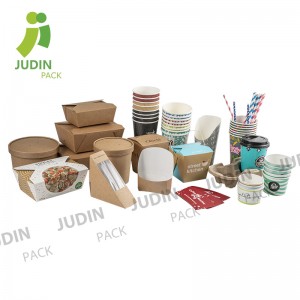What is Polystyrene?
Polystyrene (PS) is a synthetic aromatic hydrocarbon polymer made from styrene and is a very versatile plastic used to make a multitude of consumer products that typically comes in one of a few different forms. As a hard, solid plastic, it’s used often in products that require clarity, this includes products like food packaging and laboratory ware. When combined with various colorants, additives, or other plastics, polystyrene can be used to make appliances, electronics, automobile parts, toys, gardening pots and equipment, and more.
Why is Styrofoam Banned?
Although EPS or Styrofoam is widely used across the country, it has become increasingly difficult to find safe ways to dispose of it. In fact, only a handful of recycling centers across the country accept it, making it a large contributor to pollution and waste. Styrofoam does not degrade and often breaks down into smaller and smaller micro-plastics which is why it’s a focus of controversy among environmentalists. It is increasingly abundant as a form of litter in the outdoor environment, particularly along shores, waterways, and also in increasing quantities in our oceans. Over several decades, the harm caused by the buildup of styrofoam and other single-use plastics in landfills and waterways has made several states and cities see the imperative in banning this product and promoting safer alternatives.
Is Styrofoam Recyclable?
Yes. Products made with Polystyrene are marked with a recyclable symbol with the number “6” – though there are very few recycling centers across the country that accept styrofoam for recycling. If you do happen to be near a recycling center that accepts styrofoam, it typically needs to be cleaned, rinsed, and dried before you drop it off. This is why most of the styrofoam in the United States ends up in landfills where it never bio-degrades and instead only breaks down into smaller and smaller micro-plastics.
When New York City banned polystyrene in 2017, it cited a study from the New York City Department of Sanitation that said basically that while yes, it can technically be recycled that in reality it “cannot be recycled in a manner that is economically feasible or environmentally effective.”
What Are the Alternatives to Styrofoam?
If you live in an area affected by one of the styrofoam bans, don’t let it bring you down! At JUDIN packing company, we pride ourselves in having provided environmentally friendly alternatives to harmful and toxic materials for over a decade so that you can stay ahead of the curve or comply with local regulations! You can find and purchase many safe alternatives right in our online store.
What are some of the examples of environmentally friendly styrofoam alternatives for food packaging?
- Eco-Friendly Paper Food Box - Perfect for Salads & Takeout Lunches
- Eco-Friendly Salad & To-Go Bowls - Bagasse – Or Sugarcane pulp fiber – is a biodegradable, compostable material with grease-resistant properties.
- Compostable Hot Cups & Lids - Perfect for all your hot coffee, tea, and ciders!
- Compostable Cold Cups & Lids - Perfect for any cold refreshing drink!
- Compostable Paper soup cup and salad bowl - Perfect for Soup and salad!
Post time: Feb-01-2023

